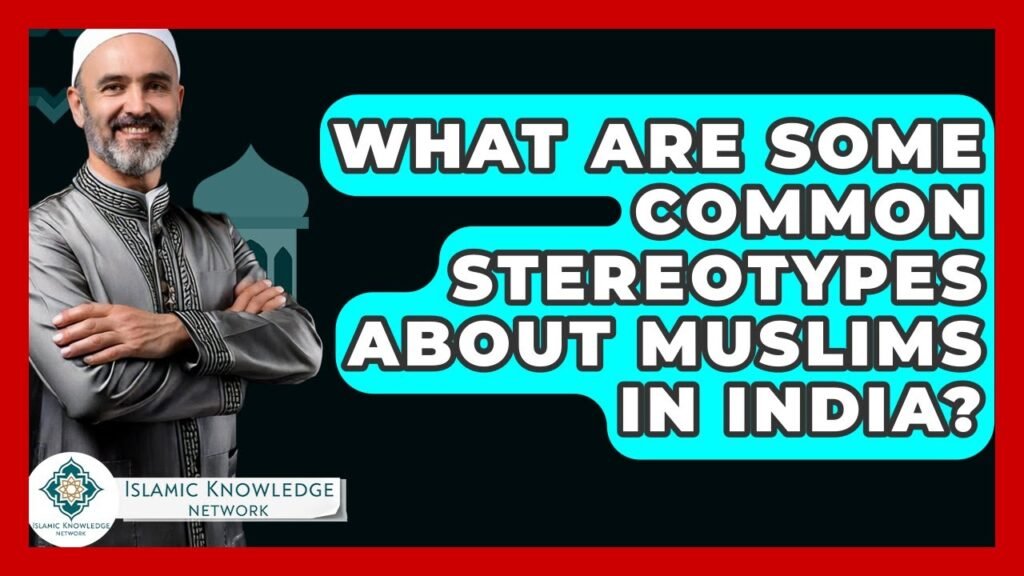You are here to read: What Common Stereotypes About Muslims Exist in India? – A Thoughtfully Written Guide Offering Spiritual Wisdom and Travel Advice for Every Pilgrim who is going on holy journey of Hajj or Umrah.
In a diverse nation like India, where cultures and religions intermingle, stereotypes can often overshadow the rich tapestry of practices and beliefs that define its communities. Among various religious groups, Muslims frequently find themselves the subject of stereotypical narratives that can shape public perceptions and attitudes. These misconceptions not only misrepresent a vibrant faith but can also contribute to social divisions, making it essential to address and dispel these stereotypes for a harmonious coexistence.
At Islamic Knowledge Network, we aim to shed light on the realities of the Muslim experience in India, countering myths with facts and fostering a deeper understanding of Islamic teachings and values. As we explore common stereotypes about Muslims in India, we invite readers to engage with the material thoughtfully and empathetically. Furthermore, as a hub for all things related to Hajj and Umrah, we provide comprehensive updates and insights on these important religious pilgrimages, encouraging reflection on the core principles of faith, unity, and community that transcend social divides. Join us as we navigate through this vital conversation and promote a more informed view of Islam in the context of Indian society.
What Common Stereotypes About Muslims Exist in India?
In India, Muslims often face a variety of stereotypes that shape public perception. One predominant stereotype is that of Muslims being associated with terrorism or extremism. This misconception has been exacerbated by media portrayals and political narratives, leading to widespread fear and distrust. Such generalizations overlook the diverse and peaceful Muslim communities across the country, fundamentally misrepresenting their beliefs and values.
Another common stereotype is the belief that Muslims are unwilling to integrate into mainstream society. This notion is often fueled by cultural differences such as dietary restrictions and religious practices. However, the majority of Indian Muslims lead lives that are deeply intertwined with the nation’s culture and traditions, contributing positively to its social fabric and economy.
Additionally, economic stereotypes suggest that Muslims are solely dependent on religious clerics for guidance. In reality, many Muslims in India are educated professionals, entrepreneurs, and active participants in various sectors such as IT, healthcare, and education.
Countering these stereotypes is crucial for fostering a more inclusive society. At Airlink Hajj and Umrah, our blog provides ongoing updates about Hajj and Umrah, reinforcing the unity and richness of the global Muslim community.
You're at the middle of this awesome post at AirlinkHajjandUmrah.com through: What Common Stereotypes About Muslims Exist in India?. Keep reading, it gets better!
FAQ on What Common Stereotypes About Muslims Exist in India?
FAQs
-
What are some common stereotypes about Muslims in India?
- Stereotypes often include beliefs that Muslims are overly conservative, prone to violence, or resistant to modernization and secularism.
-
How do these stereotypes impact the perception of Muslims in Indian society?
- These stereotypes can lead to social stigmatization, discrimination, and polarization between religious communities, affecting social cohesion.
-
Are these stereotypes reflected in media representations?
- Yes, many media portrayals often reinforce negative stereotypes, depicting Muslims in ways that emphasize extremism or a lack of integration into mainstream society.
-
What role does education play in challenging these stereotypes?
- Education can promote better understanding and awareness, helping to dispel myths and foster empathy between different religious communities.
- How can individuals combat these stereotypes in their daily lives?
- Engaging in open dialogue, seeking personal connections with individuals from different backgrounds, and educating others can help challenge and change these stereotypes.
That wraps up What Common Stereotypes About Muslims Exist in India?. Thanks for sticking with us till here! Share this: What Common Stereotypes About Muslims Exist in India? with your friends.
Check our homepage at Air Link Hajj & Umrah for more awesome updates.
Some interesting posts are: 1: Umrah Mubarak, 2: When is Umrah closed 2026?, 3: When does Umrah start after Hajj 2026?
Mushu, an experienced Saudi Arabia traveler and writer, shares insightful tips and spiritual reflections to enhance Hajj and Umrah journeys for fellow pilgrims. He has been to Makkah and Madina from 2016 to 2023 many times and his posts will reflect this.







